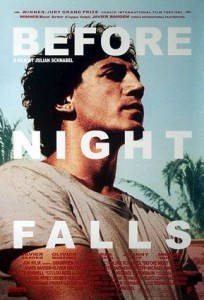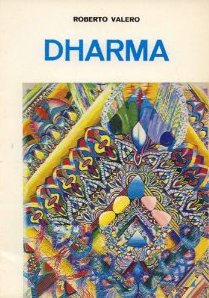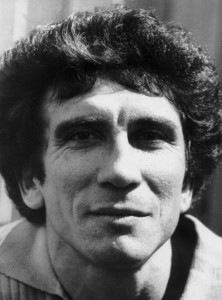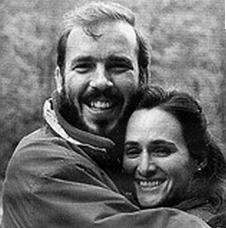Volume 15:4, Fall 2014
A Splendid Wake Issue
Washington has a long history as a place of refuge for writers escaping perilous or repressive regimes. Examples include the writers assisted during Archibald MacLeishs tenure as Librarian of Congress (W.H. Auden, Saint-John Perse, and Sigmund Skarg to name a few) and the writers Juan Ramón Jiménez and Zenobia Camprubí Aymar who took refuge from the Spanish Civil War. In the early 1980 and 1990s, Washington served as an academic and life refuge for two of the most important writers from Cuba: Reinaldo Arenas and Roberto Valero. Both fled their island home in 1980 during the Mariel boatlift when 125,000 people sought exile from the repressive conditions in Cuba.
Reinaldo Arenas (1943-1990) was one of the most talented writers of his generation. Coming from abject poverty, he rose to become one of the most celebrated. His first novel Celestino antes del alba (1965) won the prestigious Cirilo Villaverde Award for best novel, while his second novel El mundo alucinante/ Hallucinations or: The Ill-Fated Peregrinations of Fray Servando (1969) tied with Gabriel García Marquez‘s One Hundred Years of Solitude for France’s 1969 top literary prize. But his steadfast opposition to the Cuban government’s repressive policies resulted in a two-year imprisonment and the confiscation and overall silencing of his literary output on the island. What Arenas managed to have smuggled off the island by sympathetic tourists was published to great acclaim in Europe and North America.
 His reputation was such that by the time of his arrival in the United States, he was easily considered one of the great contemporary Cuban writers. As Arenas put it in his autobiography, Before Night Falls, When I left Cuba my novels were being used as assigned texts at New York University. He taught at numerous institutions including Cornell, Princeton, and as guest lecturer at Georgetown University. He also spent a year in 1988 as a fellow at the The Woodrow Wilson International Center for Scholars. Arenas would go on to have some of the most productive years of his life in the United States. His autobiography Antes que anochezca/Before Night Falls (1992) was made into an interenationally-acclaimed and Oscar-nominated film in 2000. Arenas was more known as a novelist and memoirist but published two collections of poetry in Spanish during his lifetime, El central (1981) and Leprosorio (1990). A long awaited posthumous collection of his poetic output, Autoepitaph, edited by Camelly Cruz-Martes with English translations by Kelly Washbourne, was published in August of this year.
His reputation was such that by the time of his arrival in the United States, he was easily considered one of the great contemporary Cuban writers. As Arenas put it in his autobiography, Before Night Falls, When I left Cuba my novels were being used as assigned texts at New York University. He taught at numerous institutions including Cornell, Princeton, and as guest lecturer at Georgetown University. He also spent a year in 1988 as a fellow at the The Woodrow Wilson International Center for Scholars. Arenas would go on to have some of the most productive years of his life in the United States. His autobiography Antes que anochezca/Before Night Falls (1992) was made into an interenationally-acclaimed and Oscar-nominated film in 2000. Arenas was more known as a novelist and memoirist but published two collections of poetry in Spanish during his lifetime, El central (1981) and Leprosorio (1990). A long awaited posthumous collection of his poetic output, Autoepitaph, edited by Camelly Cruz-Martes with English translations by Kelly Washbourne, was published in August of this year.
The poet and academic Roberto Valero (1955-1994) also had a connection with Georgetown University, having earned his Ph.D in Hispanic literature after his arrival from Cuba in 1980. He’d studied at the University of Havana but been forced out due to his opposition to the Cuban government’s repressive policies. He taught Spanish-American literature for many years at George Washington University. Although a writer on the island, Valero wasn’t published in the United States. His published books of poetry include Desde un oscuro ángulo/From a Dark Angle (1982), En fin, la noche/At Last, the Night (1984), Dharma (1985) with an introduction by Eugenio Florit, Venías/You Were Coming (1990) and No estaré en tu camino/I Will Not Be On Your Path (1991). According to the poet Luís Alberto Ambroggio, Valero left a manuscript of poems unpublished at the time of his death in 1994 from complications related to AIDS. Outside of a few examples in anthologies, very little of Valero’s poetry has been published in translation. His books were published by now defunct presses and is hard to come by. It is a pity, as it is strikingly evocative and gorgeously constructed work.
 A year before his death Valero gave a reading to a standing-room audience at the Library of Congress’s Pickford Theater. In her introduction, the head of the Library’s Hispanic Division Dolores Martín, stated, “This extraordinary figure [Valero] is an example of the Cuban dissident, who, through his own powers of regeneration, was expelled from the country of his birth, and without any means of subsistence whatsoever, managed to become a success in life.
A year before his death Valero gave a reading to a standing-room audience at the Library of Congress’s Pickford Theater. In her introduction, the head of the Library’s Hispanic Division Dolores Martín, stated, “This extraordinary figure [Valero] is an example of the Cuban dissident, who, through his own powers of regeneration, was expelled from the country of his birth, and without any means of subsistence whatsoever, managed to become a success in life.
Arenas and Valero were friends in Havana and Valero appears in the pages of Antes que anochezca/Before Night Falls. They both recorded selections of their work at the Library of Congress’s Hispanic Division in 1980. Valero would later author one of the first critical appraisals of Arenas work in El Desamparado Humor De Reinaldo Arenas/The Helpless Humor of Reinaldo Arenas (1991). Arenas also wrote the introduction to Valero’s only novel Este Viento De Cuaresma/This Lenten Wind (1994). This thinly veiled fictional memoir completed a year before Valero’s death is of particular interest for its setting in Washington, DC as a cuban emigre named Jaime Valdes makes sense of a life in a dream of exile. Perhaps most importantly, from 1983 to 1985, Arenas and Valero collaborated on the seminal journal, Mariel, which featured the work of many exiled writers of their generation including Juan Abreau, Rene Cienfuegos, Luis de la Paz, Lydia Cabrera, Severo Sarduy and Guillermo Cabrera Infante. Mariel only lasted for eight issues but provides an invaluable window into this historical period and exiled generation.
Reinaldo Arenas (July 16, 1943 — December 7, 1990) is a Cuban poet, playwright, and novelist, perhaps best known for the novel Farewell to the Sea (1985) and the memoir Before Night Falls (1993, later made into a movie). He escaped to the US in 1980 after two imprisonments in Cuba, and committed suicide after his health declined due to AIDS.
Roberto Valero (1955 - September 23, 1994) is a Cuban poet, who escaped to the US in 1980. Valero is the author of five books, including Dharma (1985) and No estaré en tu camino ("I Will Not Be in Your Way," 1991).
Dan Vera is the co-editor of the anthology Imaniman: Poets Writing in the Anzaldúan Borderlands (Aunt Lute Books, 2016), and author of two poetry collections: Speaking Wiri Wiri (Red Hen Press, 2013), and The Space Between Our Danger and Delight (Beothuk Books, 2008). Vera’s work is featured online at the Poetry Foundation website and in college and university curricula, various journals, and anthologies including Ghost Fishing: An Eco-Justice Anthology, the bilingual Al pie de la Casa Blanca/Knocking on the Door of The White House: Latino and Latina Poets in Washington, D.C., Queer South, Divining Divas, and Full Moon On K Street: Poems About Washington, DC. A CantoMundo and Macondo writing fellow, he’s a recipient of the Oscar Wilde Award for Poetry and the Letras Latinas/Red Hen Poetry Prize, as well as grants and fellowships from the DC Commission of the Arts & Humanities, the Humanities Council of Washington, DC, the Ragdale Foundation, and the Virginia Center for the Creative Arts. His other projects include the small literary presses Poetry Mutual and Souvenir Spoon Books, and co-curating the literary history website, DC Writers' Homes. Born and raised in South Texas, he lives in Washington, DC. For more visit http://www.danvera.com. To read more by Dan Vera: Dan Vera: Winter 2006; Dan Vera: Evolving City Issue; Dan Vera: Split This Rock Issue; Dan Vera's Introduction to the US Poets Laureate Issue,Fall 2009; Dan Vera: Langston Hughes Tribute Issue; Dan Vera: Floricanto Issue.

